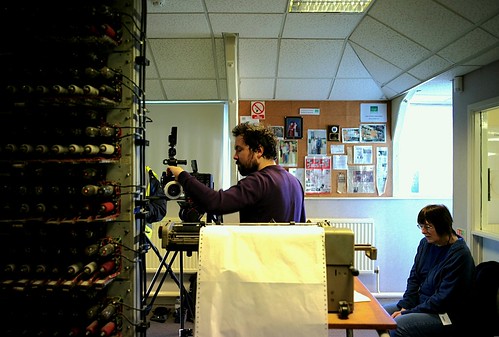Sobering piece by Michael Hiltzik in the LA Times about the impending demise of Kodak.
Once ranked among the bluest of blue chips, Kodak shares sell today at close to $1. Kodak’s chairman has been denying that the company is contemplating a bankruptcy filing with such vehemence that many believe Chapter 11 must lurk just around the corner.
The Rochester, N.Y., company said it had $862 million in cash on hand as of Sept. 30, but at the rate it’s losing money from operations (more than $70 million a month), that hoard would barely last a year. As for future revenue, it’s banking heavily on winning patent lawsuits against Apple and the maker of BlackBerry phones.
Kodak Brownie and Instamatic cameras were once staples of family vacations and holidays — remember the “open me first” Christmas ad campaigns? But it may not be long before a generation of Americans grows up without ever having laid hands on a Kodak product. That’s a huge comedown for a brand that was once as globally familiar as Coca-Cola.
It’s hard to think of a company whose onetime dominance of a market has been so thoroughly obliterated by new technology. Family snapshots? They’re almost exclusively digital now, and only a tiny fraction ever get printed on paper…
This is an astonishing story — especially when you realise that Kodak invented the digital camera way back in 1975. And as late as 1976, Kodak had 90% of film sales and 85% of camera sales in the U.S., according to a 2005 case study for Harvard Business School.




